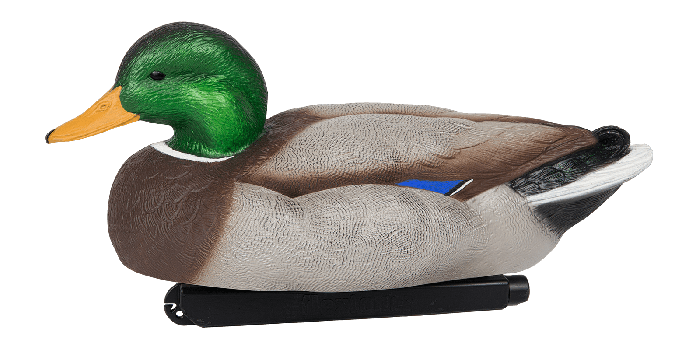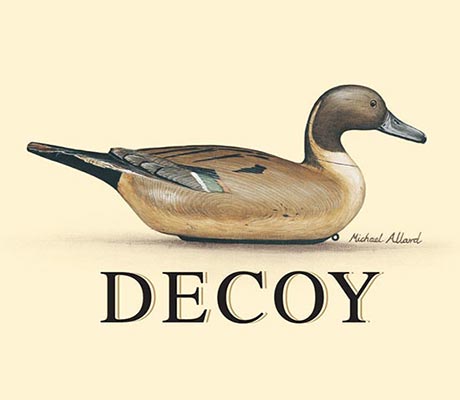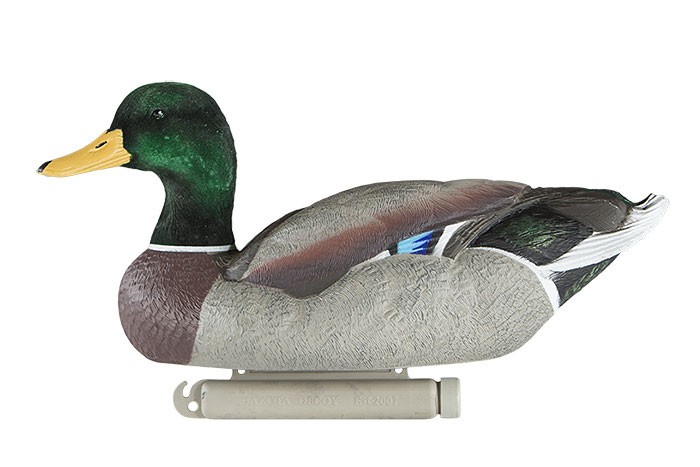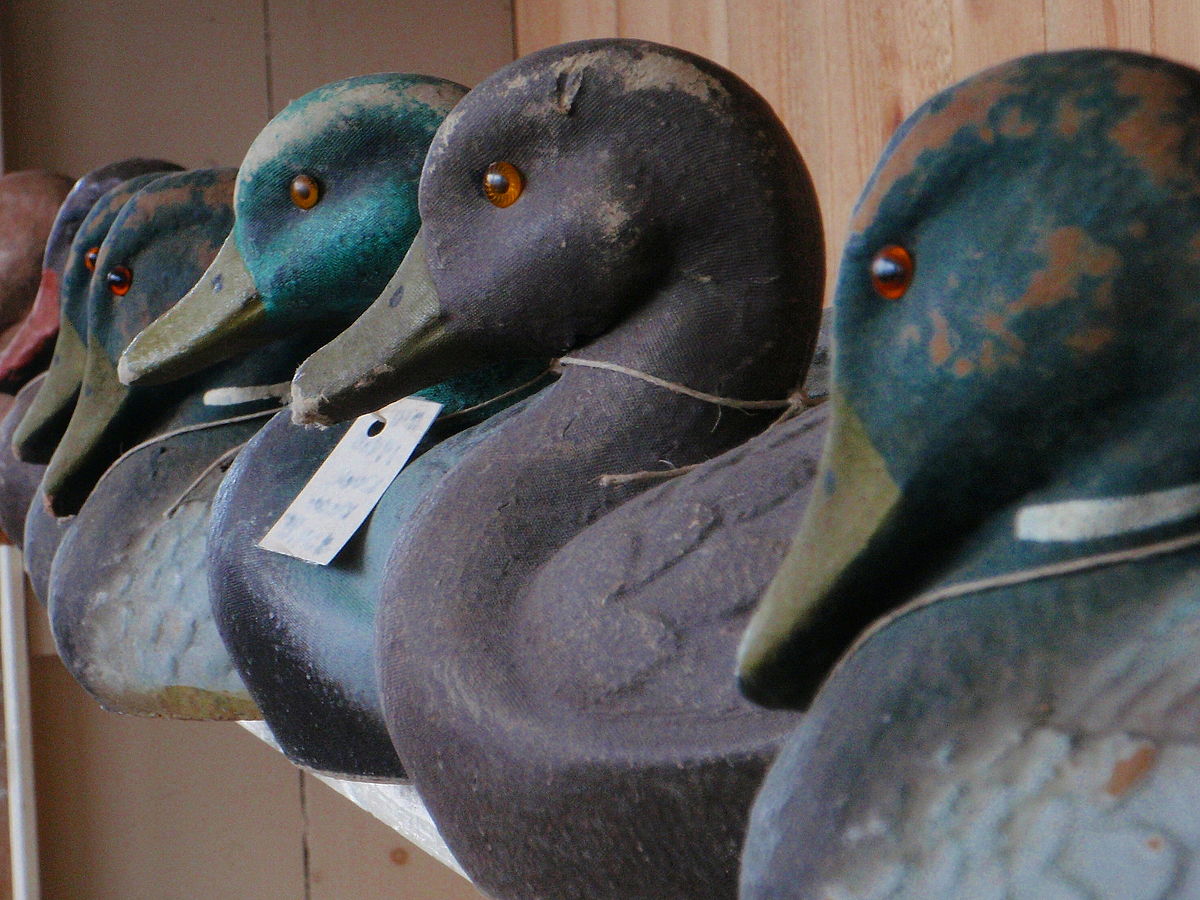
noun
- a person who entices or lures another person or thing, as into danger, a trap, or the like.
- anything used as a lure.
- a trained bird or other animal used to entice game into a trap or within gunshot.
- an artificial bird, as a painted wooden duck, used for the same purpose.
- a pond into which wild fowl are lured for capture.
- an object capable of reflecting radar waves, used as a spurious aircraft, missile, chaff, etc., for the deception of radar detectors.
verb (used with object)
- to lure by or as if by a decoy: They decoyed the ducks to an area right in front of the blind.
verb (used without object)
- to become decoyed: Ducks decoy more easily than most other waterfowl.
noun (ˈdiːkɔɪ, dɪˈkɔɪ)
- a person or thing used to beguile or lead someone into danger; lure
- military something designed to deceive an enemy or divert his attention
- a bird or animal, or an image of one, used to lure game into a trap or within shooting range
- an enclosed space or large trap, often with a wide funnelled entrance, into which game can be lured for capture
- Canadian another word for deke (def. 1)
verb (dɪˈkɔɪ)
- to lure or be lured by or as if by means of a decoy
- (tr) Canadian another word for deke (def. 2)
1610s, perhaps from Dutch kooi “cage,” used of a pond surrounded by nets, into which wildfowl were lured for capture, from West Germanic *kaiwa, from Latin cavea “cage.” The first element is possibly the Dutch definite article de, mistaken in English as part of the word. But decoy, of unknown origin, was the name of a card game popular c.1550-1650, and this may have influenced the form of the word.
1650s, from decoy (n.). Related: Decoyed; decoying.
 Liberal Dictionary English Dictionary
Liberal Dictionary English Dictionary


